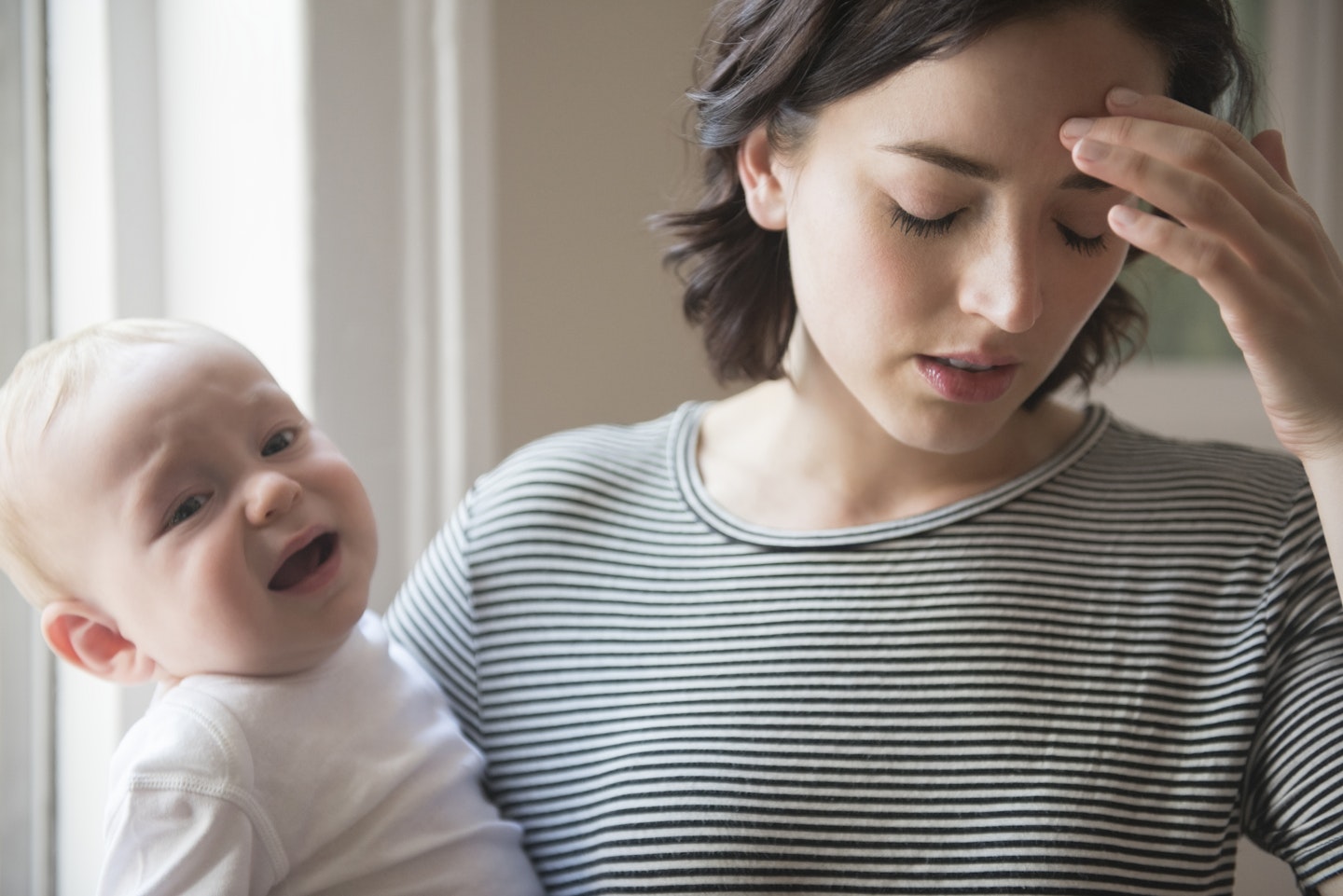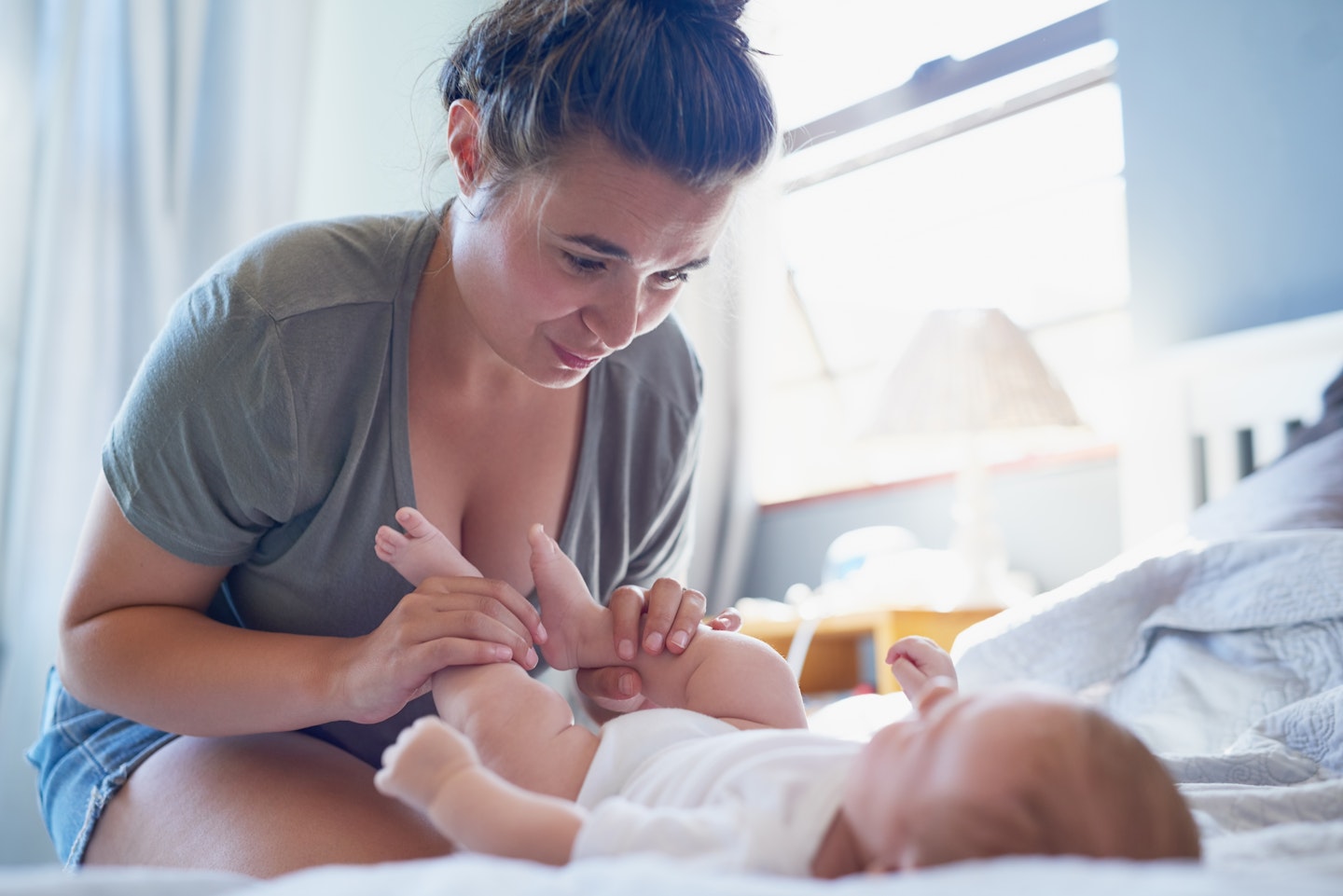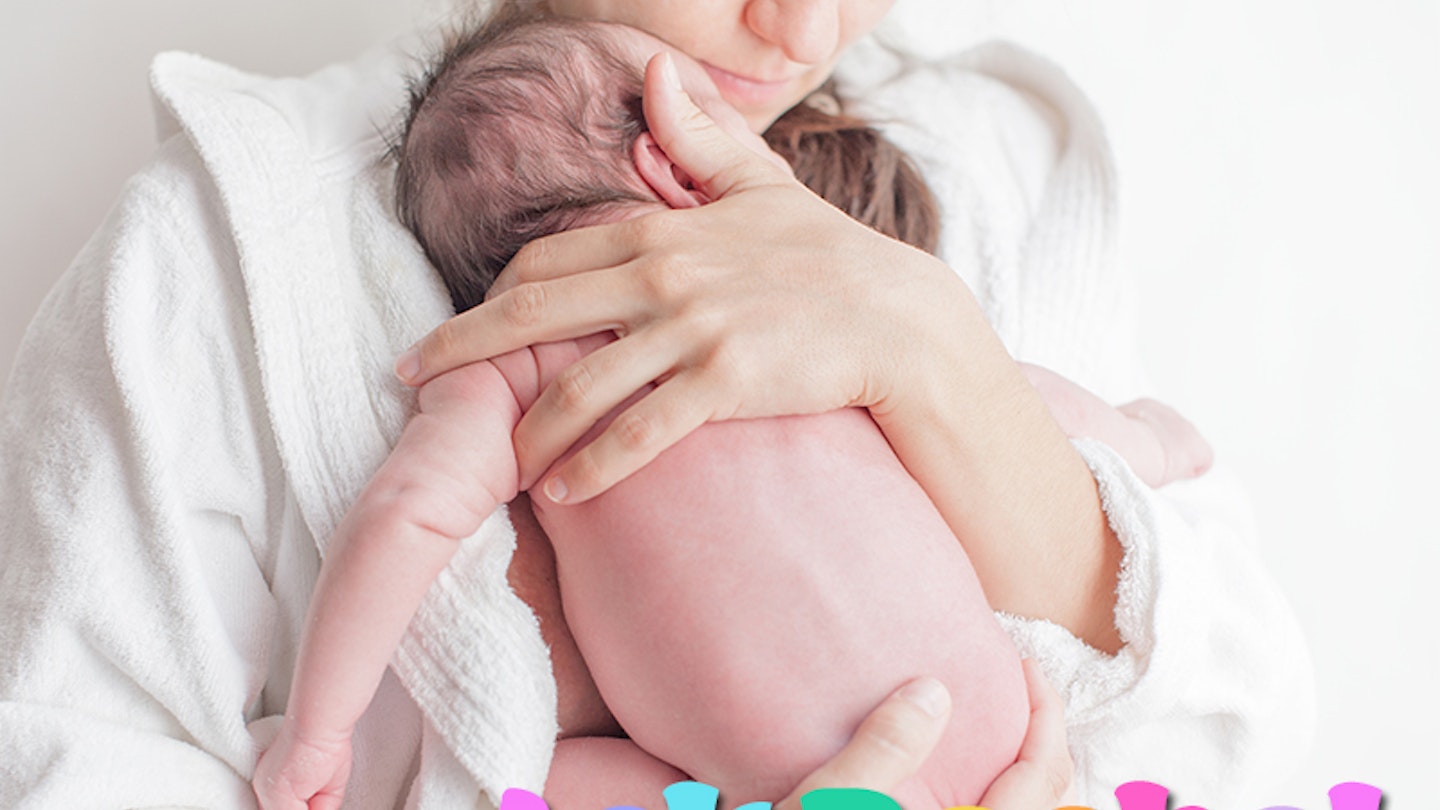My mum suffered from postpartum psychosis when she had my younger brother. Now I am newly pregnant and frightened that I will get it. What do I need to know?
Mother&Baby's resident parenting expert Rachel Fitz-Desorgher is here to help with all your questions around pregnancy, babies and toddlers. This month she explains the term 'postpartum psychosis' and the signs to look out for.
When we imagine the first couple of weeks after birth, we often see ourselves surrounded by family and friends, laden with cards and balloons whilst we relax and bathe in the reflected glory of our cute little bundle. The truth is that, in amongst the resting and celebrating, most women feel pretty overwhelmed at times, their emotions swinging between utter delight and near panic.
Hormones have a lot of settling to do after birth as our brilliant bodies go from growing and birthing a whole new human being to reverting back to 'normal' whilst creating milk, dealing with disturbed nights and ensuring that the vital process of bonding and attachment takes place. This is no mean feat which, happily, we are highly evolved to do without us even needing to think about it.
What 'causes' postpartum psychosis?

Around about the third day after giving birth, as the placental (afterbirth) hormones in our bloodstream fall and fall and our lactation (milk-making) hormones rise and rise, women experience 'baby blues'. We feel unusually emotional and will cry at the slightest thing - happy or sad. This is an almost universal experience which passes in a few days if we rest and eat and snuggle our newborn, and simply allow nature to take its course.
In about 10% of women this stage doesn’t settle, or it goes away and then comes back again and persists, and postnatal depression is diagnosed.
Very rarely (about 1 in 1000 births) women develop postpartum psychosis.
Sometimes called puerperal psychosis or postnatal psychosis this is a rare and serious mental illness and needs urgent treatment. It really is a medical emergency so it pays to know what you’re looking for in case you or someone you know is affected.
What are the signs and symptoms?

Whereas postnatal depression tends to come on over a period of time and develop gradually, postpartum psychosis tends to develop fast and soon after birth (generally within the first fortnight). Symptoms are intense and can be quite shocking - hallucinations, paranoia, mania, confusion … a woman with postnatal psychosis is completely unlike her normal self.
In the middle of this psychosis, a mum might not believe the baby is hers and be frightened of it, or she might believe other people want to harm her baby and become very agitated and deluded. If not treated fast, this condition worsens and women can harm themselves, their baby or other people. You can see why it is important if you suspect postpartum psychosis, to get medical help FAST. A call to 999 or an urgent trip to A&E is essential.
How it's treated:
The good news is that, when caught fast and treated properly, most women fully recover. Treatment usually takes place in a specialist mother and baby unit (MBU) but if there isn’t a bed available, a woman might be admitted to a general psychiatric wards until there is a place for her in an MBU.
Once safely admitted to a specialist unit, women are treated with drugs and psychotherapy over months. Most women recover from the worst symptoms within 2-12 weeks and are able to go home but full recovery takes a lot longer and requires ongoing support and medication. It might be a year before a woman feels totally back to normal.
Women are more of risk at developing postpartum psychosis, if they have:
-
A history of postpartum psychosis in a previous pregnancy
-
A mum or sister who has had postpartum psychosis
-
A pre-existing diagnosis of schizophrenia or bipolar disorder
-
Had a traumatic pregnancy or birth
It is really important that women who are more at risk should be cared for by a specialist consulting team during pregnancy so make sure that you tell your midwife about your history and family history when they book you at the start of your pregnancy if you think you might be at risk. As well as having specialist care during pregnancy, you should expect greater support from your team after baby is born. Getting the right support from the very start of your pregnancy ensures that, if you do get ill, you get the right treatment immediately.
If you are looking after someone with postpartum psychosis, remember that they really are very poorly and need extra rest, support and time to talk even after they are home from hospital.
Postpartum psychosis is a rare and frightening condition which can be fully cured with fast help and treatment. Knowledge is power so turn your fear into action, talk to your midwife and doctor and get the help you need right now!
Useful links:
Make sure you're following Mother & Baby on Instagramfor relatable memes, inspiring stories and parenting hacks!
Subscribe to Mother&Baby magazine for expert tips, must-have products and invaluable advice for mums, delivered straight to your door.
Whether you’re planning your new baby essentials shopping list, giving friends and family gift ideas, or planning for your baby shower, the Amazon Baby Wish List allows you to keep track of all your shopping ideas in one place.Click here to start yours today!
